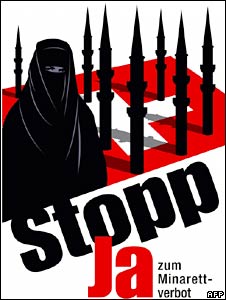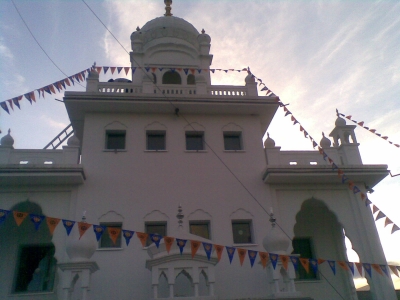| Wikipedia
is based on the idea of collective intelligence - that to be
able to absorb knowledge from different people, in different
areas of competence, is an enormous resource which can produce
a vast and reliable data-base. The result is the famous on-line
encyclopaedia. But all is not well with the world of the crowd.
Wikipedia has introduced rules and procedures designed to prevent
the crowd from changing articles maliciously. At the beginning,
the crowd consisted of people with an interest in creating a
resource for the general good, even if these people consisted
mainly of geeks and were not really the crowd' in the widest
sense. But now, in view of the fact |
|
that the geeks are not very happy with the restrictions
placed upon them, many are effectively on strike and there are
not many other non-geeks to take their place. And so it may be
that the great encyclopedia will wither because of the lack of
interest of the crowd.
In England
we have see the phenomenon of 'Jedward'. Each week on X Factor,
the twins were kept on the programme thanks to a public which
didn't really care whether they could sing or dance. Their quiffs
and the fact that they were twins were sufficient, until last
week when the crowd decided finally to kick them out. But into
a rich future or into anonymity? The crowd will decide.
|
 |
 |
Jordan,
having reappeared on "I'm a celebrity get me out of here",
found that the crowd wanted to make her suffer for having been
nasty to Peter André in "Katie and Peter", Katie
and Peter - the next chapter", "Katie and Peter - the
baby diaries", Katie and Peter Stateside" etc., etc.
After the public vote which nominated Jordan for the seventh
consecutive time as the person to undergo the 'bush-tucker trials',
she decided to get out. |
| In
the meantime, the public have conferred sainthood on Peter -
he was voted Father of the Year. As a result, he will have the
right of entry (notwithstanding his remarkable resemblance to
Jedward) into that part of heaven reserved for celebrities, the
part sponsored by Heat Magazine. |
 |
 |
Last week, in a country far-away called
Switzerland, there was another demonstration of the power of
the crowd. This time regarding minarets. After a campaign by
the extreme right against the right to have minarets on Mosques,
in a referendum 57 % of the voters were in favour of the prohibition.
The Turkish President hardly helped when he said, earlier in
the year, that minarets were the bayonets of Islam and, of course,
the posters used by the Popular Party of Switzerland showed the
minarets sprouting from a Swiss flag together with a Muslim woman
dressed in a black Bhurka.
For them, the construction of the minarets
would be an attack on the traditional character of the country:
not only in the physical sense, but also in terms of their moral
values. They represent misogyny, the bringing in of (medieval)
Sharia law and the apparent desire of Muslims to take over the
world.
Now it is obvious that the posters were
designed to create the maximum hatred against Muslims, but it
is nonetheless useful to look beneath the surface. At the moment,
there are only 4 minarets in Switzerland, whilst there are hundreds
of mosques and prayer rooms. And from no minaret in Switzerland
is it possible to call the faithful to prayer. It is contrary
to their noise abatement law. It is Switzerland after all.
|
According to an Imam in Oxford, the original purpose of minarets
was simply to provide a means of calling the faithful to prayer
in the days when there was no amplification for the human voice.
Thus minarets were built for practical purposes and were not
a part of the religion as such. It can be seen, therefore that
the only point of more minarets would be to make Islam more prominent
in Switzerland. So why now? |
 |
The request to add these minarets to so
many mosques started after the construction of a big Sikh temple
in Bern, finished in 2006. One could therefore be forgiven for
suspecting this to be religious one-upmanship. There is not much
love lost between the Muslims and the Sikhs, especially in India.
I cannot say how one ought to interpret
what the Turkish president said. Was it the Muslim equivalent
of (Isaiah 2:4): "They shall beat their swords into ploughshares
and their spears into pruning hooks", i.e. "They shall
beat their bayonets into minarets" as a symbol of peace,
or was it intended to mean that the minarets are become a means
of conquering the world from within, neutral countries included.
Obviously the proponents of the referendum
chose the second interpretation. And they may well be right.
The Turkish President also described mosques as "the military
barracks" of the Muslim religion.
|
It seems to me that this episode is to the discredit of both
the Muslims involved and the Swiss people who voted for the proposition
but, even more, it tells us that a system in which the crowd
decides directly on laws is by no means ideal. In my opinion
the more serious decisions need deeper and more informed consideration.
We ought perhaps to keep the wisdom of the crowd for the Jedwards
and Jordans of this world. Because they're worth it.
|
|